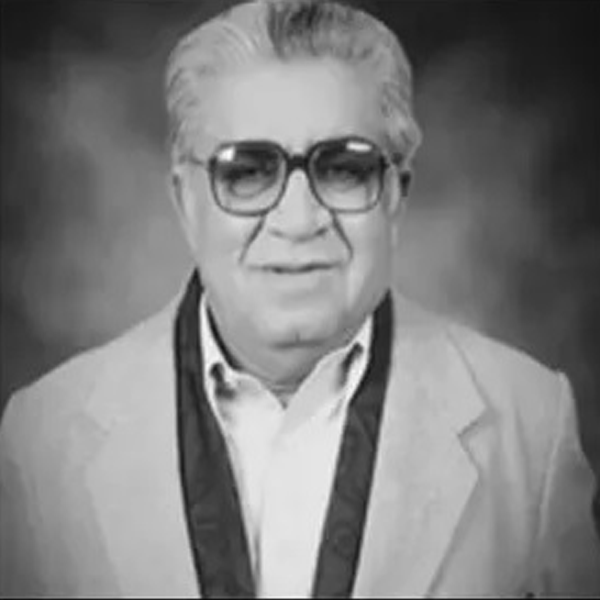
Hakim Baloch
Abdolhakim Baloch (also spelled, e.g., Abdulhakim Baluch), better known as Hakim Baloch, was born on 25 December 1942 in Panjgur, Balochistan. Hakim Baloch passed his matriculation exam at the Government High School, Panjgur, in 1957, after which he continued his studies at Punjab University and Karachi University. His subjects of study were English literature and political science, and he completed his MA in 1966. (45)
In his youth, Hakim worked as a Balochi newscaster and translator for the Central News Organisation of Radio Pakistan. From there he joined the civil administration of Balochistan Province and advanced to become the Secretary of Labour in the Provincial Government of Balochistan. (46) Subsequently he held the post of Chief Secretary of Balochistan, Pakistan.
Hakim was a member of Warná Wánendah Gal, which later developed into the Baloch Students Organization (BSO) and its literary circle Balóchi Labzánki Diwán. (47) He took an active interest in the development of a standard orthography for Balochi and was one of the advocates of a Roman script at the orthography convention convened by Gul Khan Nasir in 1972. (48)
Throughout his busy life as successful civil servant, Hakim constantly pursued his literary ambitions and never abandoned creative writing. At one point he also worked as an editor of the monthly Balochi-Brahui magazine Ulus. (49) He continued to be concerned about the lack of development of the Balochi language and its literature, for which he blamed both the authorities and the Baloch. (50) Hakim Baloch passed away on 12 October 2021.
In the preface of his book Silver Footed Dawn, Hakim expresses his frustration with the lack of “linguistic and cultural liberty” in Pakistan, and claims that this policy suppresses “cultural and artistic expression”. Writers whose first language is not Urdu have to either express themselves in Urdu, which to some extent is alien to them, or struggle to write in their mother tongue, a language they have not been able to study at school. (51)
In addition to Balochi, Hakim was also a prolific writer in Urdu and English. Among his literary activities one can mention his editorship of the Balochi short story collection Gechén Ázmánk (Selected Short Stories), (52) a collection of his own short stories and dramas, Ásay chahr (Trial by Fire),53 a collection of articles and short stories in English, Tears of Resurrection, (54) and a collection of short stories in English adapted from his Balochi originals, Silver Footed Dawn. (55) He also translated Voltaire’s Candide, into Balochi, and it was published in 2002 with the title Kándit. (56)
Another short story writer who is represented in this anthology, Naimatullah Gichki, describes Hakim Baloch’s short stories as progressive yet conservative, simple yet imaginative, illusory yet real and very readable. (57) These qualities can be seen in the story presented here, Syahkár (The Adulterer), (58) the plot of which is both simple and imaginative. The story is built around the conservative value of chastity and contains a number of unexpected developments. This makes it very readable, though not especially enjoyable or pleasant. At the end of the story, the reader is left with a frightening picture of the possible aftermath of adultery.
Stories by this Author
The Adulterer
The tribal council sent a detailed report on all aspects of the case and concluded that Dawlat Khan found his brother’s wife sleeping with a stranger and murdered them both on the spot. Two years ago Sahti was married to Dawl...